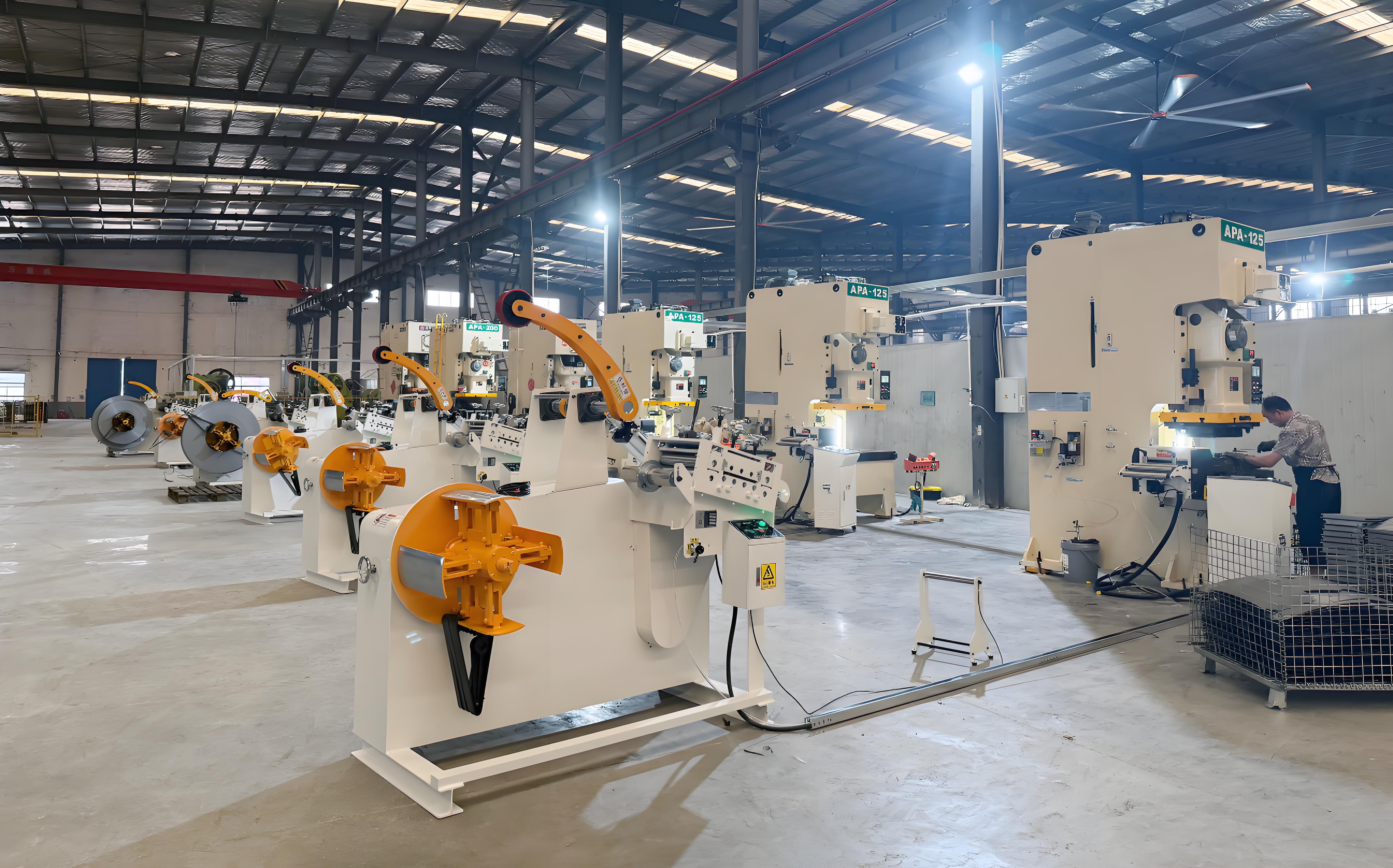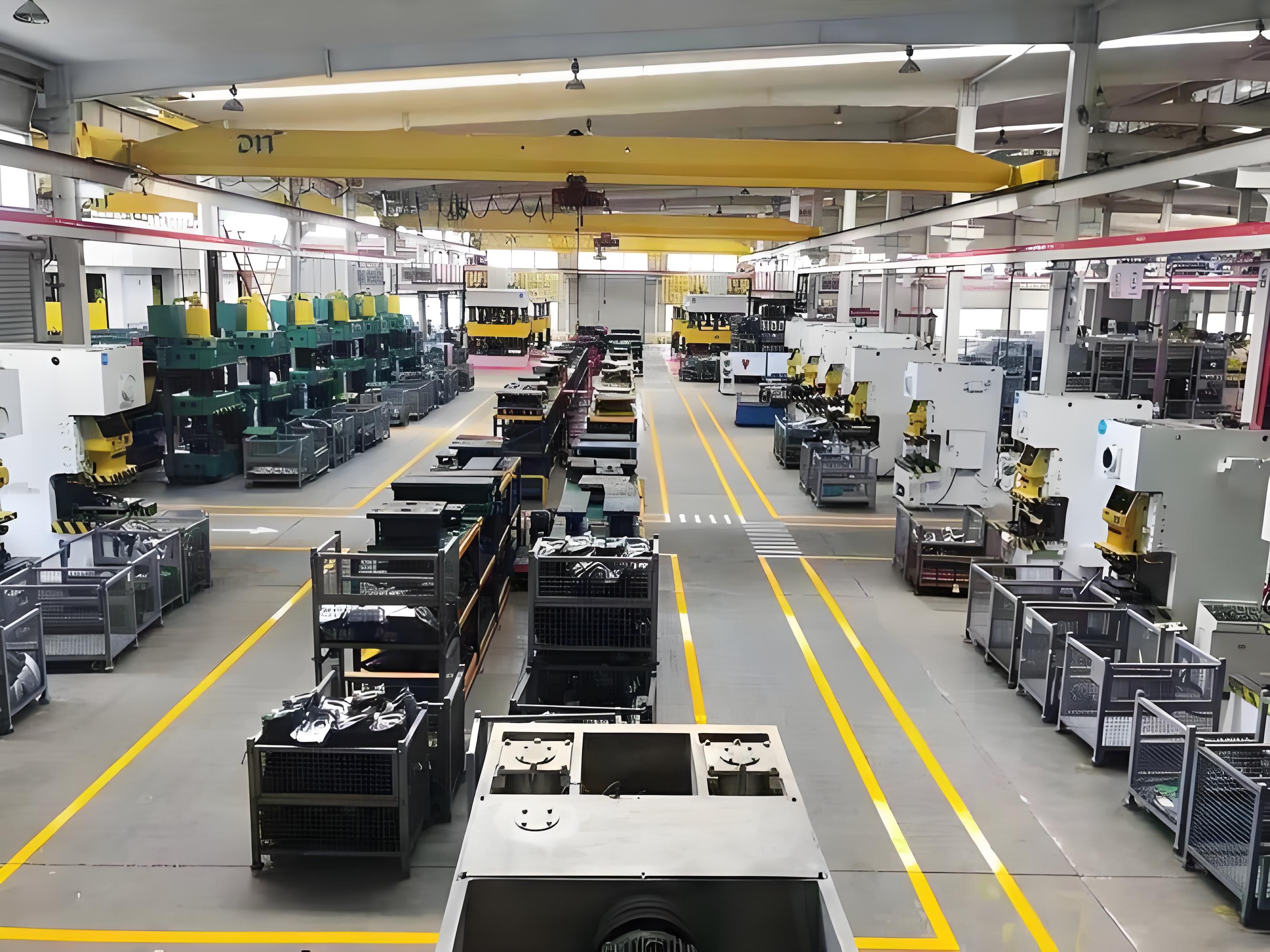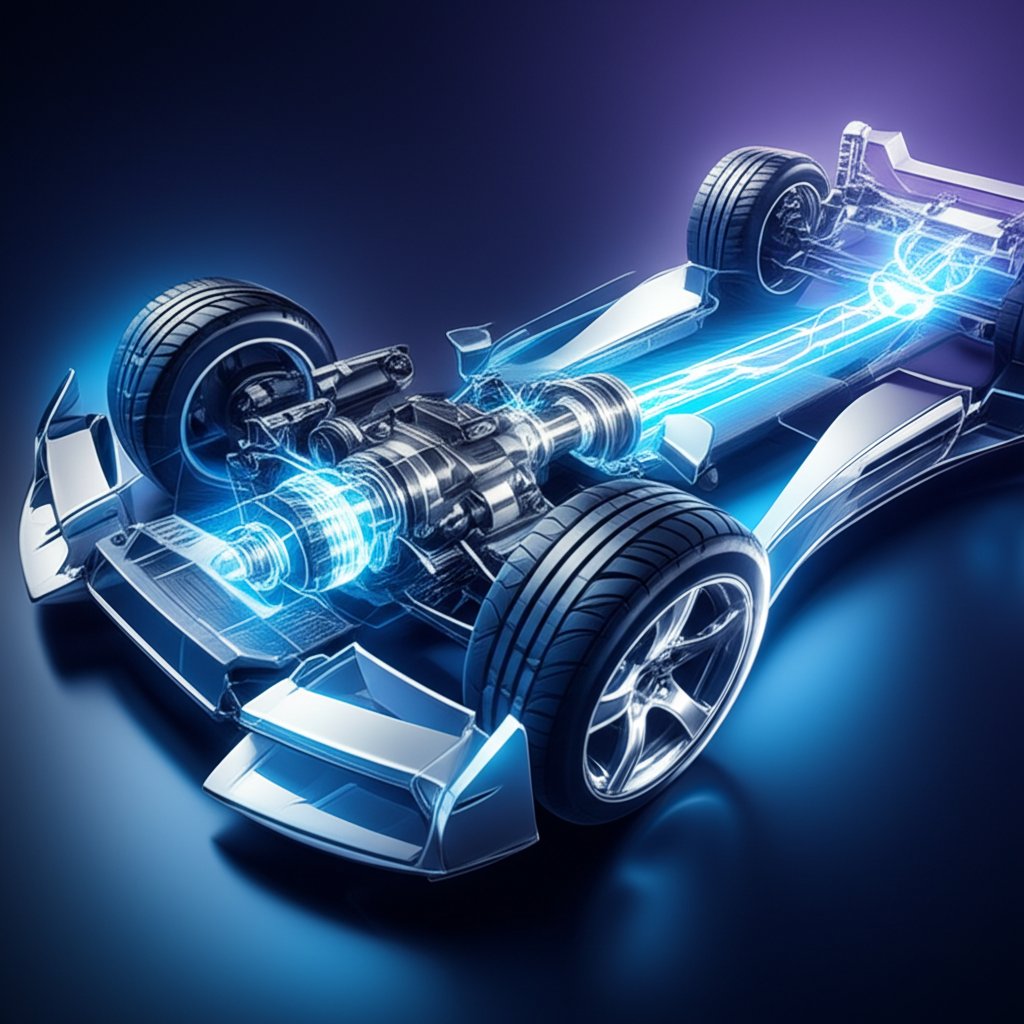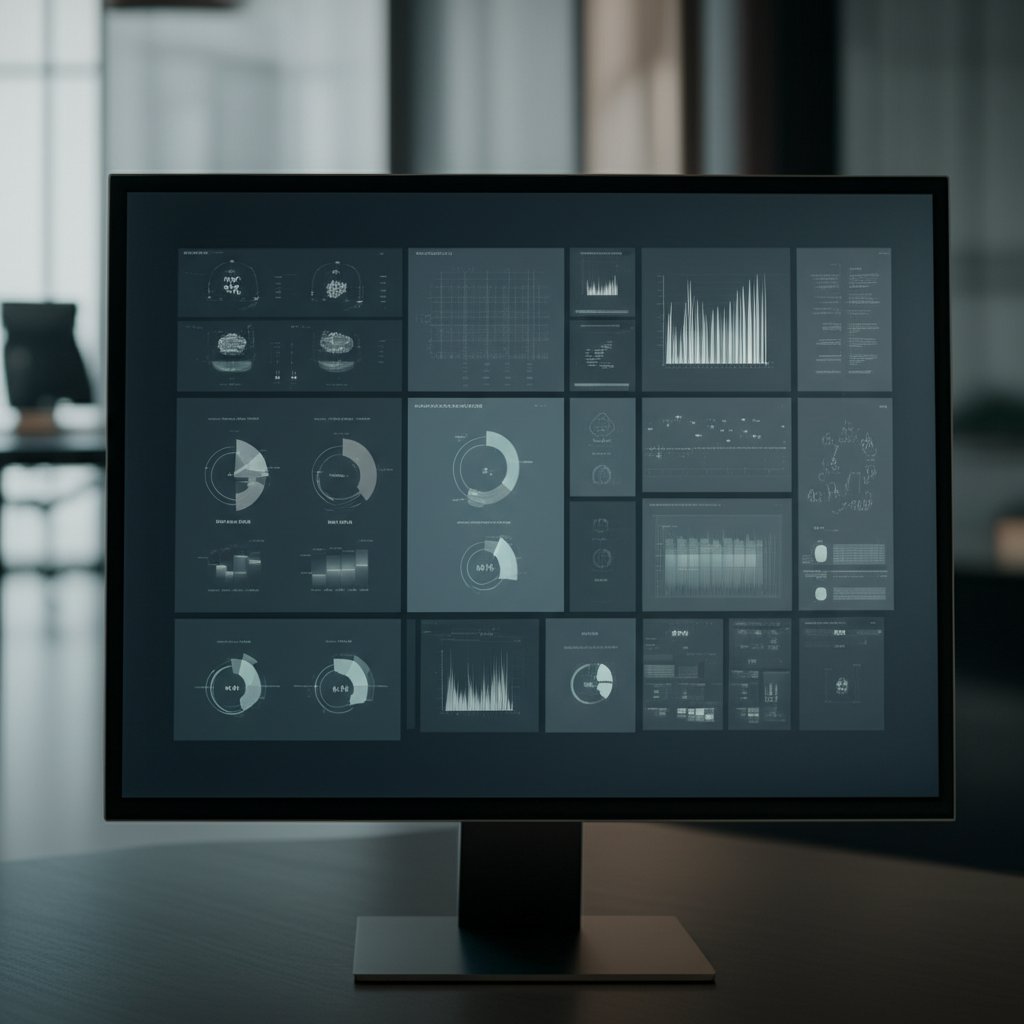Automotive Parts Manufacturers Compared: Bosch, ZF, Denso, More

Mapping the Automotive Parts Manufacturers Landscape
When you need to source reliable automotive parts manufacturers, the landscape can feel overwhelming. With so many auto parts manufacturers competing globally, how do you confidently build a shortlist that leads to the right partner—without falling into common traps? This guide is designed for procurement teams and engineers who want to move efficiently from research to RFQ, focusing on quality systems, process breadth, and delivery reliability. Whether your project demands high-mix metal parts, electronics-heavy modules, or proven system integration, understanding the supplier selection process is crucial for successful automobile parts manufacturing and supply chain stability.
Why Most Supplier Shortlists Fail
- Ignoring the maturity of quality management systems, such as PPAP (Production Part Approval Process) readiness
- Overlooking ownership and control of tooling—who maintains and stores your dies and fixtures?
- Focusing only on price, while neglecting total cost factors like logistics, service, and communication
- Failing to verify certifications or audit the factory floor in person
- Assuming a supplier’s reputation guarantees fit for your specific program or vehicle parts manufacturing needs
- Neglecting to assess customer service responsiveness and support structure
Certification alignment and proven process capability are non-negotiable—always verify both before moving to the next stage of your supplier evaluation.
How to Use This Ranking to Build Your RFQ List
Imagine you need to quickly identify automotive and parts manufacturing partners for a new project. This list is structured to help you compare suppliers by their core capabilities, certifications, and program fit. Each manufacturer is reviewed with clear pros and cons, so you can match your requirements—such as high-volume electronics, custom metal assemblies, or system-level modules—to the right partner. Use these insights to create a targeted RFQ list that minimizes wasted time and maximizes the likelihood of a successful partnership.
What Buyers Should Verify Before Contacting Suppliers
- Does the supplier have relevant quality certifications (IATF 16949, ISO 9001, etc.)?
- Are their manufacturing processes and technology aligned with your part family—stamping, machining, electronics, or plastics?
- What is their experience with similar programs or industries?
- Can they demonstrate robust delivery reliability and service support?
- Are there any red flags in their financial stability or past performance?
By focusing on these criteria and avoiding the pitfalls above, you’ll streamline your supplier search and set the stage for a successful auto parts manufacturing partnership. Throughout this guide, you’ll notice each automotive parts manufacturer is assessed for capabilities, certifications, and ideal use cases—helping you build a shortlist with confidence and clarity.

Methodology for Ranking Reliable Automotive Parts Manufacturers
When you’re narrowing down your list of automotive parts manufacturers, how can you be sure you’re comparing apples to apples? Sounds complex? That’s why we’ve structured a transparent, multi-criteria methodology—so you can move from research to RFQ with confidence, whether you’re sourcing from tier 1 automotive suppliers or evaluating new entrants in the automotive supply chain.
Scoring Criteria Across Quality, Capability, and Delivery
Imagine you’re evaluating a potential partner for motor vehicle parts manufacturing. What really matters? Our ranking system is built on five core pillars, designed to reflect the realities of both engineering and procurement:
- Quality systems: Preference for IATF 16949:2016 certification, robust PPAP readiness, and clear evidence of traceability, change control, and inspection capability.
- Process breadth and depth: Ability to support stamping, machining, casting/forging, welding, plastics, and electronics integration where relevant.
- Program fit: Support for prototypes through mass production, tooling management, and collaborative DFM/DFMA (Design for Manufacturability/Assembly).
- Logistics and service: Regional presence, responsiveness, and a record of stable supply performance.
- Compliance and sustainability: Adherence to material restrictions, industry norms, and verifiable certifications.
How Certifications and Audits Influence the Rankings
Certifications like IATF 16949 are more than just badges—they’re a baseline for global automotive component manufacturing companies. The latest rules emphasize not only having the certification but also demonstrating real-world quality and delivery performance. Audits, both internal and external, are structured to check process effectiveness, customer-specific requirements, and continuous improvement. For example, layered process audits and supplier performance metrics (such as PPM and PPMeq) are used to monitor ongoing quality and delivery reliability (source). If a supplier consistently falls below minimum expectations, corrective actions and even probation may be triggered.
Aligning your part family and technical requirements to a supplier’s process capability is the most effective way to minimize risk and avoid costly mismatches.
Data Sources and Validation Approach
Our rankings rely on a combination of published certifications, audit outcomes, and validated process capabilities. Where available, we reference supplier scorecards, audit results, and customer feedback. When specific data isn’t public, we focus on qualitative assessments—such as the supplier’s breadth in manufacturing parts, history with automotive component manufacturing, and evidence of compliance with industry standards.
| Checklist: What to Include in Your RFQ |
|---|
|
This structured approach enables buyers to fairly compare automotive supply chain companies and reduce risk in manufacturing of automotive components. By focusing on these pillars, you’ll be equipped to select the right automotive component manufacturing company for your next project—minimizing surprises and maximizing program success. Next, let’s look at how these criteria play out when evaluating individual manufacturers.
Bosch
What Bosch Is Best Known For
When you think of tier 1 automotive manufacturers with a global reach, Bosch stands out as a technology leader. Imagine a partner who can deliver everything from advanced sensors to complete powertrain and chassis systems—Bosch’s breadth in manufacturing automobile parts is unmatched. The company is widely recognized for its innovation in software-driven mobility, seamlessly integrating electronics, software, and hardware to support modern vehicle architectures.
- Sensors: Camera, radar, ultrasonic, and inertial sensors for ADAS and vehicle dynamics
- Braking: Hydraulic and brake-by-wire solutions, including ESP® and advanced actuation systems
- Electronics: Control units, vehicle computers, and software platforms for centralized and embedded architectures
Key Capabilities and Systems Expertise
Sounds complex? Bosch makes it look routine. As one of the largest auto suppliers, Bosch’s R&D culture fuels continuous innovation—from powertrain electrification to AI-powered driver assistance. The company’s experience spans:
- Integrating electronics and software within complex modules (e.g., ADAS, powertrain, and chassis control)
- Developing scalable solutions for both decentralized and centralized vehicle architectures
- Delivering robust, field-proven technology auto parts to OEM suppliers worldwide
- Supporting cross-domain integration—powertrain, motion, energy, and body systems—under one roof
Bosch’s global support network ensures consistent quality and service, making it a preferred oem supplier for leading automakers. Their expertise in automotive electronics manufacturing is particularly valuable for programs requiring deep software-hardware integration and advanced diagnostics.
When Bosch Is the Right Fit
Choosing Bosch makes sense when your project demands mature, validated systems and a partner who excels at high-volume, complex assemblies. But is it always the best choice for every scenario? Let’s break it down:
Pros
- Broad portfolio spanning sensors, control units, braking, and more; strong R&D culture; extensive global support
- Proven experience integrating electronics and software within complex modules
Cons
- May focus on high-volume programs; onboarding for niche or low-volume custom metal parts can be less direct
- Lead times and minimums can be stringent depending on business unit and region
Ideal Use Cases
- Complex systems requiring electronics integration and software-compatible hardware
- Programs needing a mature global support network and field-proven components
- OEM-aligned projects where Tier 1 system integration is critical
- Sensors: ADAS, surround sensing, tire pressure monitoring
- Braking: ESP®, brake-by-wire modules
- Electronics: Vehicle computers, control units, diagnostic platforms
In summary, Bosch is a clear leader among automotive parts manufacturers, especially for OEMs seeking advanced electronics and system-level integration. Their capabilities in technology auto parts and their status as one of the largest auto suppliers make them a go-to choice for high-complexity, high-volume programs. If your requirements include custom manufactured parts for low-volume or highly specialized metalwork, you may need to explore more niche partners. Next, we’ll look at a manufacturer that specializes in end-to-end custom metal part manufacturing for those unique sourcing needs.

Shaoyi
Core Metalworking Capabilities Under One Roof
When you need custom automotive parts—whether it’s bracketry, housings, or precision-welded assemblies—juggling multiple vendors for stamping, CNC machining, and welding can slow your project and introduce quality risks. What if you could streamline the entire process with a single partner? Shaoyi delivers a comprehensive suite of metalworking services, all under one roof, designed specifically for automotive part manufacturing. Their capabilities include:
- Automotive stamping and sheet metal fabrication for structural and chassis components
- High-precision CNC machining for tight-tolerance car parts machining and complex geometries
- Welding expertise spanning gas shielded, arc, and laser welding, verified through advanced non-destructive testing (UT, RT, MT, PT, ET)
- Forging and cold extrusion for robust, high-strength custom manufactured parts
By integrating design, simulation (CAE), and production, Shaoyi minimizes handoffs and accelerates your custom part manufacturing timeline. Their rapid prototyping and low-volume manufacturing options ensure flexibility from sample to mass production, while robust tooling stewardship supports ongoing quality and cost control.
Quality Assurance and Certifications That Matter
Quality isn’t just a promise—it’s a process. Shaoyi’s operations are certified to IATF 16949:2016, the global benchmark for automotive parts manufacturers. This certification covers every phase, from document traceability and change control to on-site operational evidence, ensuring that each component meets rigorous industry standards (source). Their quality management system features:
- Comprehensive inspection protocols, including both static and dynamic mold acceptance
- Real-time progress tracking and transparent reporting throughout the project lifecycle
- Dedicated engineering support for DFM (Design for Manufacturability) and PPAP (Production Part Approval Process) readiness
- Rapid 24-hour quoting to keep sourcing cycles short and responsive
Shaoyi’s IATF 16949:2016 certification and end-to-end traceability are critical for buyers seeking a custom parts manufacturer with proven audit performance.
Best-Fit Programs and Engagement Model
So, when does Shaoyi make the most sense for your automotive and parts manufacturing needs? Imagine projects where you require:
- Bracketry, housings, and welded assemblies with reliable tolerances and repeatability
- Close collaboration from early design through mass production, including CAE simulation and process optimization
- A single-source partner to reduce multi-vendor coordination risk and ensure accountability
Shaoyi supports rapid prototyping (as fast as 5 working days for 1–50 pieces), low-volume runs (7 working days for 51–4999 pieces), and mass production (automatic lines, 5000+ pieces, as fast as 15 working days), all with consistent quality and on-time delivery.
Pros
- Stamping, CNC machining, welding, and forging delivered by a single partner for streamlined DFM and PPAP readiness
- IATF 16949:2016 certified operations supporting automotive-grade quality and traceability
- Responsive service with rapid 24-hour quotes suited to tight sourcing timelines
Cons
- Focused on metal parts rather than electronics-integrated systems
Ideal Use Cases
- Bracketry, housings, precision machined parts, and welded assemblies requiring reliable tolerances and repeatability
- Projects needing close collaboration from early design through mass production with tooling stewardship
- Buyers seeking a single-source partner to reduce multi-vendor coordination risk
For procurement teams and engineers, Shaoyi stands out as a custom car parts manufacturer that combines technical depth, disciplined quality, and responsive service. If your project demands custom part manufacturing with automotive-grade traceability and speed, explore Shaoyi’s full-service offering to streamline your next RFQ. Next, we’ll compare how diversified Tier 1 suppliers like Magna tackle broader system integration challenges.
Magna
Where Magna Excels in Systems and Modules
Imagine you need a supplier who can deliver not just individual components, but entire vehicle systems. That’s where Magna stands out among the largest automotive suppliers. As a tier 1 supplier automotive partner, Magna offers deep expertise across body, chassis, powertrain, seating, and electronic modules—making them a go-to for OEMs seeking complex system integration. Their ability to deliver full system modules, such as seating solutions, battery housings, and ADAS (Advanced Driver Assistance Systems), demonstrates the breadth of their manufacturing automobile parts portfolio.
- Body: Lightweight structures, thermoplastic liftgates, and complete body modules
- Chassis: Front and rear subframes, battery enclosures, and chassis integration
- Powertrain: Electric drive systems, hybrid transmissions, and advanced cooling modules
- Electronics: Digital vision systems, ADAS domain controllers, and automated driving solutions
Manufacturing Breadth and Integration Capability
Sounds complex? Magna’s global production network—spanning over 340 locations on five continents—means consistent quality and scalable output wherever your program launches. They support manufacturing of automotive components from concept to serial production, offering a true one-stop shop for both established OEMs and new market entrants. Their Mafact quality system ensures that every site delivers to the same high standard, whether you’re sourcing body structures in Europe or powertrain modules in North America.
Magna’s flexible manufacturing approach covers combustion, hybrid, and electric vehicle architectures. Their engineering and industrialization teams can optimize the entire process—from individual part development to complete vehicle assembly—making them one of the top automotive suppliers for platform-scale programs.
When Magna Is the Right Choice
So, when should you shortlist Magna among the leading automotive suppliers? If your project demands multi-domain integration, robust validation, and global launch support, Magna’s strengths become clear. Their extensive experience with high-volume OEM programs and ability to scale quickly across regions make them a strong fit for long-term, platform-based contracts. However, if you need highly specialized, low-volume custom manufactured parts, you may need to engage specific Magna divisions or consider other custom parts manufacturers.
Pros
- Deep experience in multi-domain systems and vehicle-level integration
- Wide process coverage enabling complex assemblies and multi-plant strategies
Cons
- Engagements may prioritize larger-volume OEM programs
- Custom low-volume metal parts may require specific divisions or partners
Ideal Use Cases
- Full system modules such as seating or body structures with rigorous NVH and safety requirements
- Programs that benefit from global manufacturing and launch support
- Long-term platform contracts needing supply chain depth and redundancy
- Body: Rails, brackets, lightweight panels
- Chassis: Subframes, battery housings
- Powertrain: Electric drive units, hybrid transmissions
- Electronics: Vision systems, ADAS controllers
In summary, Magna’s role as a tier 1 in automotive industry is defined by its ability to deliver on the most demanding, integrated vehicle programs. Their global footprint, process breadth, and commitment to quality make them one of the biggest automotive suppliers for OEMs needing scale, reliability, and technical depth. Next, we’ll explore how Denso approaches powertrain and electronics integration for complex assemblies.
Denso
Core Strengths in Electronics and Thermal Systems
When you need a partner that combines deep electronics expertise with advanced thermal management, Denso stands out among top auto suppliers. Imagine you’re launching a next-generation EV or hybrid: precise temperature control, robust powertrain management, and seamless electronic integration are non-negotiable. Denso’s portfolio directly addresses these needs, making it a preferred automotive component manufacturer for programs where reliability and innovation matter most.
- Thermal management: Heat pump air-conditioning, HVAC units, heat exchangers, and battery cooling systems designed for energy efficiency and comfort.
- Electronics: Powertrain control modules, advanced sensors, electronic expansion valves, and air quality systems that support both combustion and electrified platforms.
- Powertrain: Common rail diesel injection, ignition systems, and engine management components engineered for precise control and emissions compliance.
Denso’s track record in R&D—pioneering world-firsts like the electric compressor for hybrid cars and advanced ADAS sensors—demonstrates their commitment to pushing boundaries in automotive components manufacturing. Their continual investment in innovation keeps their solutions at the forefront of the industry.
Manufacturing Scope and Integration
Sounds complex? Denso’s global footprint and vertically integrated manufacturing enable them to deliver standardized modules at scale, while supporting regional customization where needed. Their manufacturing scope covers:
- Mass production of electronics-rich assemblies, including engine management, thermal, and safety modules
- Stringent quality management aligned with OEM requirements—Denso’s products are widely fitted as original equipment in leading vehicles worldwide
- Support for both high-volume programs and specialized solutions, though their engagement model often favors large, long-horizon OEM contracts
Denso’s disciplined quality culture ensures each product—whether destined for a hybrid powertrain or an advanced HVAC system—meets rigorous standards. Their robust supply chain and established relationships with automakers make them a reliable tier 1 automotive supplier, especially for system-level sourcing where integration risk must be minimized.
Best-Fit Program Types
Wondering when Denso is the right choice for your auto component manufacturing needs? Here’s where they excel:
Pros
- Depth in electronics-rich assemblies and thermal management components
- Broad OEM experience and established quality discipline
Cons
- May prioritize large, long-horizon OEM contracts over custom low-volume work
- Engagement pathways can be structured through specific product groups, requiring careful navigation
Ideal Use Cases
- Programs requiring electronics and thermal integration with robust validation
- Projects benefiting from standardized modules and proven supplier processes
- System-level sourcing where Tier 1 coordination reduces integration risk
- Thermal: HVAC units, heat exchangers, battery cooling modules
- Electronics: Engine control units, sensors, powertrain controllers
- Powertrain: Diesel injection, ignition systems, engine management modules
In summary, Denso’s reputation as a leading automotive electronics supplier and automotive supplier is built on decades of OEM partnerships, technical innovation, and disciplined quality. For buyers seeking a partner for electronics-heavy modules, thermal management, or powertrain control, Denso is a benchmark among automotive parts manufacturers. Their focus on system-level integration and robust validation processes makes them an excellent fit for complex, high-volume programs—delivering peace of mind for procurement teams and engineers alike. Next, we’ll examine how ZF approaches motion control and safety systems as another top player in auto component manufacturing.

ZF
Key Systems and Process Breadth
When you think about automotive tiers and the critical systems that keep vehicles safe, agile, and efficient, ZF stands out as a leading tier one supplier. But what makes ZF unique among automotive tier 1 suppliers to the automotive industry? Imagine a partner that brings together advanced mechanical engineering, electronics, and smart software to deliver complete motion control, safety, and drivetrain solutions. ZF’s portfolio covers:
- Drivetrain: Automatic and manual transmissions, electric drives, axle systems, and hybrid modules for cars, commercial vehicles, and special machinery.
- Chassis: Adaptive damping, active rear-axle steering (AKC), front/rear axle systems, and complete chassis modules designed for stability and agility.
- Safety: Active and passive safety systems, including electronic stability control, braking systems, airbags, and advanced driver-assist solutions.
- Software and Electronics: Domain controllers, sensors, actuators, and by-wire technologies that enable software-defined vehicles and automated driving.
By integrating mechanical and electronic domains, ZF supports the shift toward next-generation mobility—where vehicle motion control, electrification, and automation are essential. Their solutions are engineered for both passenger cars and commercial vehicles, making them a top choice for OEMs seeking a holistic approach to manufacturing automobile parts and systems.
Quality Posture and Integration
Sounds complex? ZF’s quality posture is built on decades of engineering rigor, global manufacturing, and validated processes. As a tier 1 auto supplier with over 230 locations in 40 countries, ZF delivers consistent quality and process integration across regions. Their investment in R&D—around 5% of annual sales—drives continuous innovation in both hardware and software, ensuring their offerings stay ahead of evolving industry standards.
- Validated manufacturing for both high-volume OEM platforms and specialized vehicle programs
- Robust quality management systems, traceability, and compliance with industry certifications (IATF 16949, ISO 9001, etc.), as expected from a leading automotive component manufacturing company
- Proven expertise in integrating safety-critical electronics and mechanical systems, from brake-by-wire to adaptive chassis control
As automotive tiers become more complex—think tier 2 manufacturer support for specialized modules or tier 3 automotive suppliers for niche components—ZF’s ability to harmonize the full system is a key differentiator. Their focus on software-defined vehicle architectures (such as the cubiX® platform) positions them as a forward-thinking partner for OEMs navigating electrification and automation.
When ZF Is a Strong Match
Wondering if ZF is the right fit for your next program? Imagine you’re sourcing for a project where harmonized mechanical-electronic integration, safety validation, and long-term platform support are non-negotiable. Here’s how ZF stacks up:
Pros
- Expertise in motion, safety, and drivetrain modules with seamless electronics-mechanical integration
- Global manufacturing options and validated processes for consistent quality
Cons
- Focus often on platform-scale OEM programs; smaller custom parts may need specialized channels
- Complex onboarding cycles typical of large tier 1 suppliers
Ideal Use Cases
- Chassis and safety systems where testing depth and validation are paramount
- Programs requiring harmonized mechanical-electronic integration
- Long-run OEM projects needing established Tier 1 governance and support
- Drivetrain: Transmissions, electric drives, axle modules
- Chassis: Adaptive damping, steering systems, suspension modules
- Safety: Brake-by-wire, electronic stability control, airbag systems
In summary, ZF is a global leader among automotive parts manufacturers, particularly for programs demanding advanced motion control, safety, and drivetrain integration. Their ability to bridge mechanical and electronic domains, coupled with validated manufacturing and strong quality systems, makes them a top-tier partner for OEMs and platform-scale projects. If your sourcing strategy includes tier 1 suppliers to the automotive industry or you’re mapping out multi-tier supplier networks, ZF’s capabilities and global reach are hard to match. Next, we’ll explore how Aisin brings its own strengths in drivetrain and body systems to the automotive component landscape.
Aisin
Portfolio Overview and Strengths
When you’re seeking a partner with broad capabilities across drivetrain, body, and related automotive systems, Aisin consistently ranks among the world’s top tier 1 auto suppliers. Imagine a company that produces over 10 million transmissions annually and supports virtually every major automaker—Aisin’s influence in the tier 1 automotive industry is both deep and wide. Their product range covers everything from advanced powertrain modules and robust engine components to structural body parts and select electronics, making them a trusted resource for automotive tier one sourcing and system-level integration.
- Powertrain: Automatic and manual transmissions, hybrid and electric drive units, eAxles, and advanced engine modules
- Body systems: Doors, sunroofs, sliding doors, and closure systems engineered for durability and precision
- Chassis and drivetrain: Axle modules, transfer cases, differential gears, and suspension components
- Thermal and engine management: Water pumps, oil pumps, exhaust manifolds, and cooling modules
- Automotive interiors: Select interior mechanisms and comfort systems, supporting both function and safety
As an automotive tier one supplier, Aisin’s experience extends from traditional combustion platforms to electrified and autonomous vehicle architectures. Their global footprint and consistent quality frameworks make them a go-to choice for OEMs demanding reliability and scale in automobile parts manufacturing.
Manufacturing and Program Capabilities
Sounds complex? Aisin’s manufacturing approach makes it routine. Their production engineering leverages advanced digital technologies and robust process controls to optimize efficiency, quality, and flexibility. From R&D and prototyping to full-scale mass production, Aisin’s expertise ensures stable supply and rapid industrialization for new programs. You’ll notice their ability to:
- Support high-volume production with globally deployed, highly reliable equipment and standardized processes
- Deliver prototypes and launch new lines quickly, thanks to digital simulation and in-house equipment design
- Maintain rigorous quality management, with continuous improvement and layered process audits
- Provide stable support across regions, minimizing risk for global vehicle platforms
For buyers, this means Aisin is well-suited for projects where repeatability, process discipline, and proven OEM interfaces are essential—whether you’re launching a new model or scaling an established platform. Their experience as a tier one auto supplier also extends to collaboration with automotive interior suppliers, ensuring system modules integrate seamlessly with broader vehicle architectures.
Ideal Sourcing Scenarios
Wondering when Aisin is the right fit for your next RFQ? Here’s where their strengths are most valuable:
Pros
- Broad system coverage with established Tier 1 processes and quality frameworks
- Experience across drivetrain and body systems with proven OEM interfaces
Cons
- Engagements may center on larger-scale programs; bespoke low-volume parts can require special pathways
- Electronics integration varies by product line; verify scope during RFQ
Ideal Use Cases
- Drivetrain and body systems where scale and repeatability are essential
- Projects leveraging system modules and established validation protocols
- OEM-aligned sourcing needing stable global supply support
- Powertrain: Automatic transmissions, hybrid drive units, eAxles
- Body systems: Sliding doors, sunroofs, closure modules
- Chassis/drivetrain: Axle modules, suspension, transfer cases
- Engine/thermal: Water pumps, oil pumps, exhaust manifolds
- Interiors: Seat mechanisms, comfort systems
In summary, Aisin’s reputation as a leading automotive interior manufacturer and tier one automotive partner is built on decades of OEM alignment, technical breadth, and manufacturing discipline. If your sourcing strategy prioritizes stability, global scale, and system-level integration, Aisin should be high on your shortlist of automotive parts manufacturers. Next, we’ll bring all these insights together with a detailed comparison table to help you build your supplier shortlist quickly and confidently.

Comparison Table
How to Read the Comparison Table
When you’re faced with a long suppliers list, it’s easy to get lost in the details. This table is designed for rapid scanning—so you can quickly compare core strengths, certifications, and regional support across leading automotive parts manufacturers. Each row highlights what makes a manufacturer stand out, helping you move from research to RFQ with confidence. If you’re searching for a benchmark in single-roof metalworking, rapid quotes, or global system integration, this auto parts ranking table is your shortcut to a targeted shortlist.
| Manufacturer | Core Strengths | Primary Processes | Certifications | Best For | Regional Support |
|---|---|---|---|---|---|
| Shaoyi | End-to-end metalworking under one roof; rapid 24-hour quotes; disciplined IATF 16949:2016 quality | Stamping, CNC machining, welding, forging | IATF 16949:2016 | Precision metal parts, welded assemblies, custom part manufacturing | Global shipping; responsive service |
| Bosch | Electronics, sensors, braking, system integration; strong R&D global Tier 1 | Electronics assembly, sensor fabrication, control units | IATF 16949, ISO 9001 (varies by facility) | Complex electronics-heavy modules, OEM system integration | Global presence, regional engineering hubs |
| Magna | Body, chassis, powertrain, electronics; multi-domain integration | Body/chassis assembly, electronics, powertrain modules | IATF 16949, ISO 14001 | Platform-scale modules, full system contracts | Global manufacturing, 340+ sites |
| Denso | Thermal, powertrain, electronics; robust OEM quality | Electronics, thermal integration, powertrain modules | IATF 16949, ISO 9001 | Electronics-rich assemblies, thermal management | Global footprint, strong Asia-Pacific support |
| ZF | Motion control, safety, drivetrain; mechanical-electronic integration | Transmissions, chassis, safety systems, software | IATF 16949, ISO 9001 | Chassis/safety systems, long-run OEM projects | Global, 230+ locations |
| Aisin | Drivetrain, body systems, powertrain, select electronics | Transmission, body modules, engine components | IATF 16949, ISO 14001 | Drivetrain/body systems, OEM-aligned sourcing | Global, strong Japan/Asia presence |
Shortlist Logic by Part Family and Process
Imagine you’re narrowing down your tier 1 automotive suppliers list or building a list of automotive tier 1 suppliers for your next RFQ. The table above lets you quickly match your requirements—such as custom manufactured parts, electronics integration, or platform-scale modules—to the right partner. For example, Shaoyi’s single-roof approach and IATF 16949:2016 certification set a benchmark for custom metal part projects where traceability and speed are non-negotiable. Meanwhile, Bosch and Denso excel at electronics-heavy modules, and Magna, ZF, and Aisin are ideal for large-scale system integration and global launches.
Always verify certifications and required PPAP (Production Part Approval Process) levels during supplier audits to ensure your chosen partner meets both regulatory and program-specific standards. Learn more about PPAP requirements.
Next Steps for RFQ and PPAP
- Use the auto parts ranking table to filter manufacturers and suppliers by your critical part family and process needs.
- Request up-to-date certifications, process flow diagrams, and PPAP documentation for your shortlist.
- Confirm regional support and logistics capabilities to avoid supply chain surprises.
- Engage with partners who demonstrate both technical fit and a track record of responsive service.
By using this structured comparison, you’ll move from a broad suppliers list to a focused, actionable RFQ shortlist—minimizing risk and maximizing program success. Next, we’ll outline a step-by-step supplier selection roadmap to help you finalize your decision and prepare a robust RFQ package.
Supplier Selection Roadmap
Quick Recommendations by Sourcing Scenario
When you’re ready to move from research to action, how do you choose among so many automotive parts manufacturers in the USA and globally? Imagine you’re planning an RFQ for a new vehicle program—do you need custom metalwork, electronics-heavy modules, or full system integration? Here’s a practical guide to matching your needs with the right partner, based on real-world supplier strengths and streamlined for rapid decision-making:
- Shaoyi – Your first call for precision metal components and welded assemblies requiring IATF 16949:2016 discipline, rapid 24-hour quoting, and end-to-end project management. Their single-roof approach minimizes supplier risk and accelerates timelines, making them a standout among car parts manufacturers in the USA and beyond.
- Bosch or Denso – Ideal for electronics-heavy modules, sensors, and integrated systems. If your project requires deep software-hardware integration or robust thermal management, these tier 1 suppliers bring proven OEM experience and a global support footprint.
- Magna, ZF, or Aisin – Best for platform-scale modules, such as full body systems, drivetrain, or integrated electronics where global launch support and supply chain depth are critical. Their expertise in tier 1 manufacturing ensures stable, repeatable results for long-term programs.
Checklist for RFQ Readiness
Before reaching out to your shortlisted suppliers, make sure your RFQ package is complete and clear. This not only streamlines the process but also helps you get accurate, comparable bids—especially important when dealing with tier 1 suppliers or evaluating a tier 2 automotive suppliers list. Use this checklist to stay organized:
| RFQ Essentials |
|---|
|
Preparing this information upfront will help both you and your supplier avoid misunderstandings and ensure a faster, more efficient sourcing cycle. For more complex assemblies or programs that may include tier 2 automotive suppliers, consider adding details about sub-supplier expectations and documentation.
Final Thoughts on Risk, Certification, and Supplier Audits
Choosing the right automotive parts manufacturer is about more than just technical fit—it’s about minimizing risk and ensuring long-term success. Imagine the impact of a missed delivery or a quality lapse on your production line. That’s why it’s essential to go beyond the quote and validate your partner’s certifications, audit their processes, and assess their financial and operational stability.
Never award a contract before verifying up-to-date certifications and running a supplier audit—this is your safeguard against costly disruptions and compliance issues.
In summary, whether you’re working with American auto parts manufacturers, established tier 1 suppliers, or reviewing a tier 2 automotive suppliers list, align your selection with part family, volume, and validation needs. For custom metal components with single-partner accountability, Shaoyi offers a disciplined, rapid-response model. For electronics-heavy or platform-scale modules, leading global suppliers bring the depth and reliability required for complex automotive programs. By following this roadmap and checklist, you’ll set the stage for a successful, low-risk supplier partnership.
Frequently Asked Questions about Automotive Parts Manufacturers
1. Who are the leading automotive parts manufacturers worldwide?
Leading automotive parts manufacturers include Bosch, Denso, Magna, ZF, Aisin, and specialized partners like Shaoyi. These companies excel in various domains, from electronics and system integration to precision metal part manufacturing, and serve both global OEMs and niche custom projects.
2. How do I choose the right automotive parts manufacturer for my project?
Start by matching your part family and program needs—such as electronics integration, custom metalwork, or full system modules—to the supplier's core strengths and certifications. Always verify quality standards like IATF 16949, review their process capabilities, and assess their regional support and delivery reliability before moving to RFQ.
3. What certifications should I look for when selecting an automotive parts supplier?
Key certifications include IATF 16949 for automotive quality management, ISO 9001 for general quality standards, and ISO 14001 for environmental management. These ensure suppliers meet industry requirements for traceability, process control, and continuous improvement.
4. What are common mistakes to avoid when shortlisting automotive parts manufacturers?
Avoid focusing solely on price, neglecting to verify certifications, overlooking tooling ownership, and failing to assess supplier responsiveness or process maturity. It's crucial to audit the factory floor and align supplier capabilities with your specific technical and volume needs.
5. How does Shaoyi support custom automotive metal parts manufacturing?
Shaoyi offers end-to-end metalworking, including stamping, CNC machining, welding, and forging in a single facility. Their IATF 16949:2016 certification and rapid quoting process enable fast, reliable sourcing for precision metal components and welded assemblies, reducing coordination risks for buyers.
 Small batches, high standards. Our rapid prototyping service makes validation faster and easier —
Small batches, high standards. Our rapid prototyping service makes validation faster and easier — 
